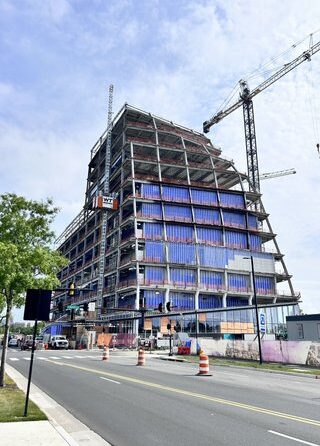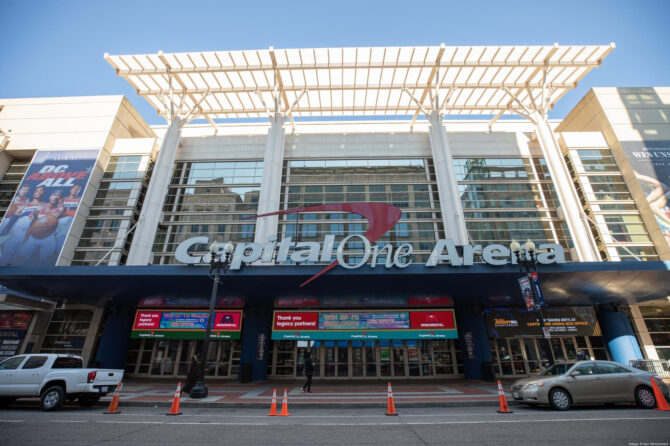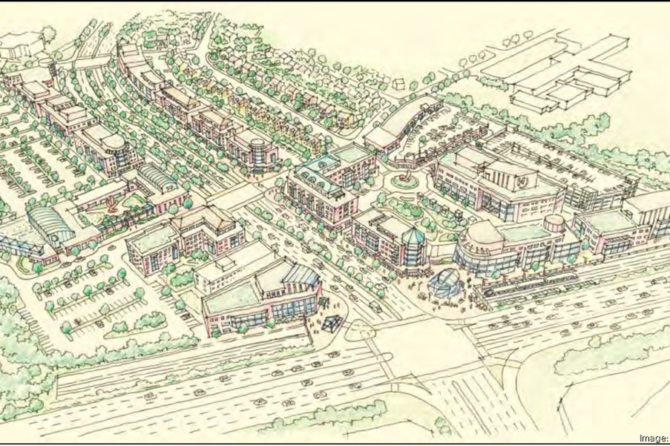WASHINGTON BUSINESS JOURNAL: Assuming the Greenbelt FBI headquarters deal isn’t derailed by opponents who prefer that the agency stay in D.C. or move to Virginia, what happens next?
The site itself is essentially shovel ready. The comprehensive plan and zoning already support the transit-oriented mixed-use, and the Washington Metropolitan Area Transit Authority, which controls the Metro-adjacent property, has already authorized negotiating a land sale with the federal government.
WMATA declined to comment and did not make an executive available for an interview, but the agency referred me back to a transit authority board meeting last year where it approved a process if the General Services Administration ended up choosing Greenbelt.
The measures approved at the Sept. 22, 2022, meeting allow WMATA to negotiate a noncompetitive agreement to sell roughly 40 acres to the GSA for the FBI headquarters campus, estimated at the time to weigh in at 2.1 million square feet. Separately, on 14 of the remaining acres, Metro said it would seek a private development partner for roughly 1.3 million square feet of mixed uses — not spelled out, but some mix of residential, retail, hotel, etc. — per the board action report. So, 3.4 million square feet in all across 54 acres.
New development at Greenbelt would also include state- and county-funded infrastructure improvements, such as a new parking garage, reconfiguration of bus facilities, new streets and an expanding I-495 interchange, per last year’s Metro board action report.
Metro will pursue the mixed-use project through its own joint development solicitation process, as it’s done and continues to do at other stations. (Metro had previously picked Renard Development Co. to develop the broader site, but that agreement expired in 2019.)
Both Metro’s land sale to GSA and separate solicitation of a private development partner would require Metro to hold public hearings.
A report from Nina Albert, who was commissioner of the GSA’s Public Buildings Service, detailed additional aspects of the process in a Sept. 30 report selecting Greenbelt. She reportedly overruled a three-member panel that had recommended a competing Springfield site.
Albert rated Greenbelt highest of the three candidate sites with regard to “schedule risk,” citing Metro’s “public commitments to sell the property at its appraised value.” She estimated it would take only nine months to close on Metro’s Greenbelt property, whereas the Springfield site, even though the federal government already owns it, would require 41 months for tenant relocation and site demolition. Since the government wants to begin construction after a “development period” of no more than 42 months, Greenbelt “suggests the greatest opportunity for the project schedule to absorb any site acquisition delay,” Albert wrote.
Albert rated Lerner Enterprises’ Landover Mall site as having the greatest schedule risk, saying in the memo the owner “has offered the property for a price that significantly exceeds GSA’s assessment of the fair market value,” such that negotiating an agreed price could take a long time.
Congress still needs to wrangle funding, and the GSA hasn’t yet detailed how it would go about developing the new FBI campus. Would it tap a fee developer through a competitive process or manage the design-build itself?
The necessary master planning and zoning have already been accomplished, Peter Shapiro, chair of the county’s Planning Board, a land use regulatory agency, told me in an interview.
That agency’s 2013 Greenbelt Metro Area and MD 193 Corridor Sector Plan and Sectional Map Amendment long ago aimed explicitly to attract “a major employer or GSA employment campus” near the Metro station and to “maximize supporting mixed-use development.” Metro’s parcels around the station are already zone for mixed-use, transit-oriented development.
If and when specific development proposals come forth, a county spokesman told me the FBI campus would need to go through a dual review process, both from the county Planning Board and the National Capital Planning Commission, a federal land use agency, while the private development would need to gain approval only from the county Planning Board.
For the FBI campus, the Planning Board’s input would be advisory only, per its “mandatory referral” process, an agency spokesperson told me. An NCPC spokesperson confirmed in an email that, if the federal government acquires the land, the NCPC would review the project.










